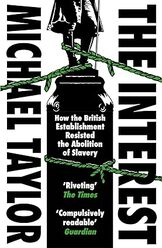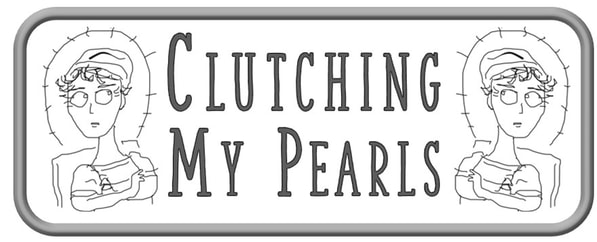| This blog explores social attitudes in Jane Austen's time, discusses her novels, reviews forgotten 18th century novels, and throws some occasional shade at the modern academy. The introductory post is here. My "six simple questions for academics" post is here. |

We also have graphic detail of the misery of life on a sugar plantation, where the planters protested that (a) life in the West Indies was delightful, better than living in Africa, and (b) enslaved Africans were naturally so indolent and the work so hot and miserable that there was no alternative but to use the lash.
I appreciated all the detail and nuance that Taylor brings to this history. However, as others have mentioned, it's a lot to read and I skimmed the latter part of the book because I was more interested in what was going on during Jane Austen's time, or during the period when her brother Henry was chosen as a delegate to an abolition convention. In addition to learning about all the principal players in the debate, we have lots of detail about the ground-level campaign, what journalists and cartoonists had to say, as well as the testimony of that handful of emancipated Blacks who were able to tell their own story. I also checked out some of Taylor's primary sources. This book is a rich resource for finding the key documents, publications, and even novels of the period.
Slavery came to an end in the United States after a terrible war, costly both in human and material life. In the British empire, owners of enslaved persons were compensated for giving them up, but the enslaved persons, in either case, received no compensation. Slavery is still not eradicated from the globe.
| In this 1826 cartoon by Robert Cruishank, "John Bull taking a clear view of the Negro Slavery Question!!" Abolitionists looking at the West Indies from a distance are shown as agitating about the dire conditions of enslaved people when, golly gee, it's actually a paradise over there in the sugar plantations with enslaved folks dancing happily. |
So far as I can observe, Taylor's point of view is well on the ascendant.
| For more on what women did to fight slavery, "Women Writers and Abolition," by Deirdre Coleman, in Volume 5 of The History of British Women's Writing 1750-1830, edited by Jacqueline M. Labbe, lists and quotes the female writers, chiefly poets, who used their talents in the abolition campaign. Many women novelists included the abolition debate in their novels, such as Eleanor Sleath in her book The Bristol Heiress. You can find more examples here. The campaign to boycott sugar was called the Anti-Saccharite campaign. I reference it in my novel, A Contrary Wind. One of my characters, the widow of a Bristol ship-builder, refuses to serve sugar at her tea table. Click here for more about my books. |


 RSS Feed
RSS Feed